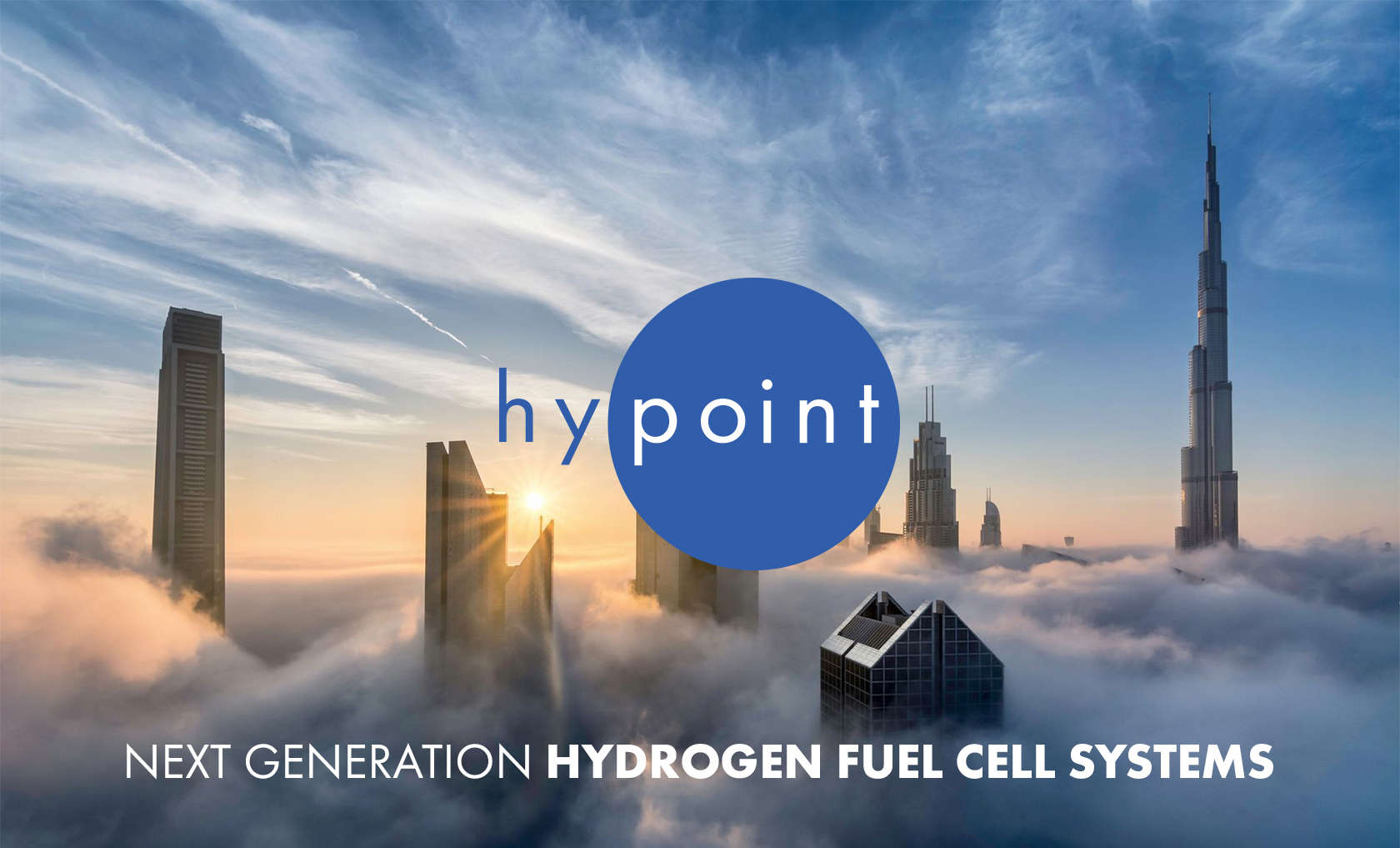EF Global VTOL
16 Mar 2023

Partnership Aims to Develop a Hydrogen Fuel Cell System That Can Achieve Specific Power Greater Than 3,000 W/kg, Suitable for Narrow-Body Aircraft
.jpeg)
HyPoint 20kW Single Power Module (Fuel Cell)
MENLO PARK, Calif., October 8, 2021 (Newswire.com) - HyPoint, the company developing zero carbon-emission turbo air-cooled hydrogen fuel cell systems for aviation and urban air mobility, today announced that it has entered into a strategic development agreement with BASF New Business GmbH (BNB), a subsidiary of chemical company BASF. The purpose of the partnership is to develop and test a new proton-conductive Celtec® membrane with stronger mechanical properties that can operate at higher temperatures and a higher pressure differential, as well as related components and materials.
The new membrane-electrode assembly (MEA) technology created as a result of this partnership is expected to significantly improve the performance of HyPoint's turbo air-cooled high-temperature proton-exchange membrane (HTPEM) fuel cell system. The membrane's enhanced mechanical properties together with an advanced MEA design with gas diffusion electrodes will significantly reduce the MEA's weight while increasing its durability. The new high-performance fuel cell system is expected to achieve more than 3,000 W/kg, an increase of at least 50% over the current system, and become available to customers in mid-2024.
"BASF has substantial experience in the manufacture and development of HTPEMs, MEAs, as well as the necessary chemicals and compositions for hydrogen fuel cells," said Dr. Alex Ivanenko, founder and CEO of HyPoint. "Our collaboration will yield next-generation membranes and membrane-electrode assemblies that result in a significant improvement to our system's specific power, durability, and operational temperature range. Together, these will satisfy the requirements of the air transportation market, including narrow-body aircraft. It will also enable us to increase our production volume to meet customer demand and continue to expand capacity."
BASF has been manufacturing Celtec® membranes and MEAs for more than 15 years. While cyclic operation, various impurities in the gas flow, and changing environmental conditions can stress the materials used in low-temperature (LTPEM) fuel cells, Celtec® HTPEM MEAs allow operation at temperatures between 120°C and 180°C, enabling a high tolerance to impurities while simplifying temperature and water management.
.jpg)
HyPoint fuel cell (expanded)
"HyPoint has substantial experience in the development of HTPEM hydrogen turbo air-cooled fuel cell systems with zero CO2-emissions and game-changing energy performance for the air transportation and urban air mobility markets," said Dr. Frank Prechtl, Director of the Business Buildup Energy Management at BASF New Business. "BASF supports the transformation of the mobility sector towards zero emissions. Hydrogen fuel cells are certainly a viable option for a sustainable and decarbonized air transportation. We look forward to working alongside HyPoint to bring its turbo air-cooled HTPEM fuel cells to market."
BASF has created a short video that explains how hydrogen fuel cells work with its Celtec® MEAs: https://youtu.be/HAw_JGuHsT4.
About HyPoint
HyPoint is pioneering hydrogen-powered zero-emission aviation, aeronautics, and urban air mobility. HyPoint's flagship hydrogen fuel cell system features an innovative air-cooling and oxygen supply system that offers unprecedented energy performance: at least 2,000 watts per kilogram of specific power — more than triple the power-to-weight ratio of traditional (liquid-cooled) hydrogen fuel cells systems — and up to 1,500 watt-hours per kilogram of energy density, enabling longer-distance journeys. HyPoint's lightweight, climate-independent, extended-lifespan system dramatically increases operational time and utilization rate while decreasing total cost of ownership by as much as 50%. In 2020, the company won the NASA iTech Initiative in which inventive technologies were ranked based on criteria that included technical viability, benefits to humanity, and commercialization potential. The company was founded in Silicon Valley and is backed by leading venture capital firms and individual investors. To learn more, please visit hypoint.com.